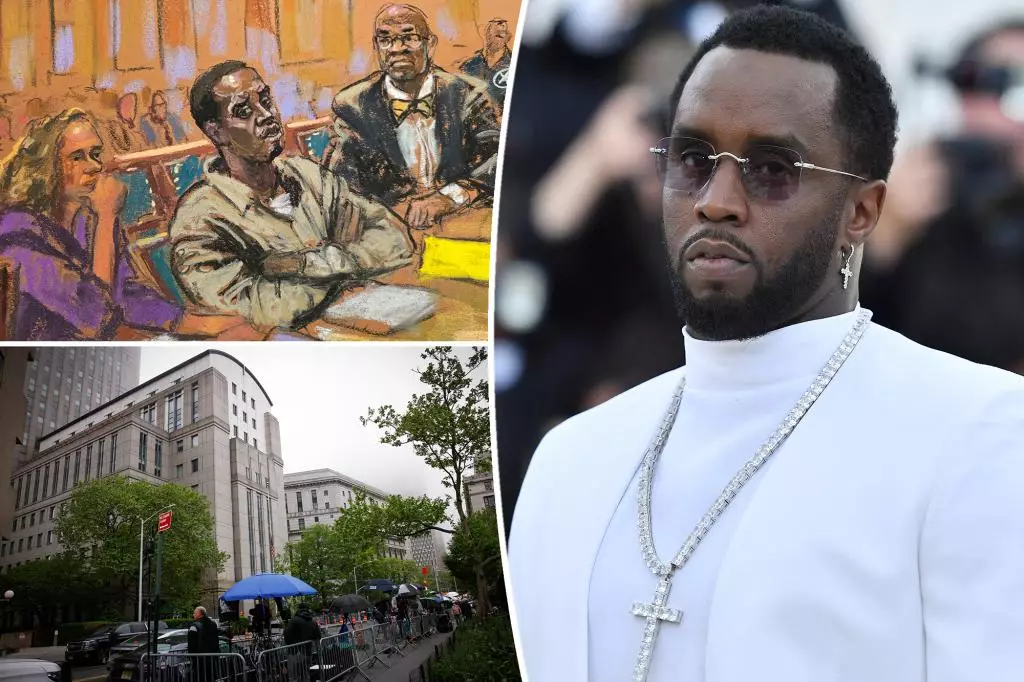The reverberations of Sean “Diddy” Combs’ forthcoming trial in New York are echoing through the fabric of the entertainment industry, raising alarming questions about power dynamics, consent, and the consequences of celebrity status. Combs, a mogul known for his influence and extravagant lifestyle, is facing serious accusations that paint a disturbing portrait not only of him as an individual but of a broader systemic issue rife within the entertainment sphere. The 17-page indictment reads less like a legal document and more like a dramatic recounting of a mafia-style conspiracy, alleging pervasive sexual abuse and violence that spans two decades.
Evidence against Combs isn’t limited to mere accusations; it articulates a pattern of manipulation and coercion, where women were allegedly lured into a world of drug-fueled “Freak Offs” with male sex partners. The prosecution is not merely suggesting poor personal choices; it paints a picture of a calculated approach to reshape women’s lives, funneling them through a transformative yet torturous pathway towards subjugation. This chilling scenario raises profound questions about the ethical standards that govern behavior in institutions where fame and influence can often eclipse morality.
Consent or Coercion? The Gray Area of Relationships
A substantial portion of the tension surrounding the trial hinges on the concept of consent. Combs’ legal team has adamantly asserted that all sexual interactions were consensual, portraying Combs as a flawed individual entangled in toxic relationships but not as a criminal engaged in racketeering. This argument invites scrutiny; in an environment characterized by power imbalances, can true consent ever exist? The notion that women were offered career advancement in exchange for sexual favors or faced potential ostracism adds weight to the idea that the lines are blurred in such circumstances.
In an era where the conversation around consent is flourishing, this trial serves as a critical litmus test. The outcome could potentially redefine how relationships, particularly those influenced by fame, are understood legally and culturally. The ideal of scintillating nightlife should not come at the expense of human dignity, yet, this case posits questions that society must grapple with: When does charisma cross the line into coercion?
Historical Context of Violence and Accountability
Combs’ storied past is punctuated with violence and legal troubles, a narrative that raises eyebrows and relegates him to the status of a controversial public figure. From his assault on a record executive with a champagne bottle to being embroiled in incidents of gun violence, his history has implications that cannot be ignored as this trial unfolds. The irony lies in the double-edged sword of celebrity—fame can shield individuals, but it can also lay bare their transgressions.
As allegations of violence resurface, including recorded acts from 2016 involving former girlfriend Cassie, one must consider the persistent failure of systems designed for accountability. Combs’ ability to navigate the legal system thus far has been telling; he has escaped severe repercussions repeatedly, essentially cultivating an environment in which he feels impervious to consequence. A trial is no longer just a legal proceeding but a socio-cultural event that cannot be divorced from the peculiarities of celebrity and public perception.
Implications for the Future of Celebrity Culture
As jury selection commences, the implications of this trial extend far beyond Combs. This case stands as a potential turning point in how sexual misconduct and abuse of power are treated, especially in an industry notorious for its problematic behaviors. It poses a question that demands attention: will the outcomes lead to greater accountability, or will they reinforce the status quo that often accommodates the misbehavior of the powerful?
In an industry that thrives on image, the repercussions of the trial are likely to permeate cultural narratives, shaping public sentiments around accountability and consent. What does it mean for a society that allows such influences to lurk in its shadows, and how strongly will it respond when confronted with the reality of alleged abuses? The stage is set for a trial that could reverberate throughout society, challenging the dynamics of celebrity culture and the ethics of power in profound ways.

